
What a Novel Looks Like Before It's a Novel
Six Novelists on their Writing Rituals and Early Drafts
In the long game that is novel-writing, the most mysterious element is the first draft: the rough attempt at shaping a story, the often never-seen pages. What does a book look like in its earliest days? How does a novel go from a messy idea to a bound book? Such are the questions that plague me.
I reached out to several writers to get a sense of how they develop a draft of a book—is austerity required? Of most interest: the tedium of the thing. Below, learn the .docx names, the preferred conditions, and the crucial snacks of some of our brightest contemporary authors—Kathleen Alcott, Jami Attenberg, Patty Cottrell, Garth Greenwell, Porochista Khakpour, and Nina McConigley.
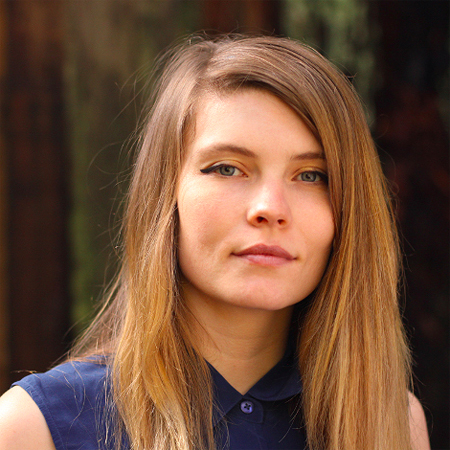
Kathleen Alcott, author of Infinite Home and The Dangers of Proximal Alphabets
How do you save your project? Longhand or computer? I’m interested in .doc names, what word processing app you use, how often you save, etc.
Probably the only unusual method about my saving is that I do so by chapter; I don’t prefer to have a daily sense of the length of a project, because I’ve found that can work as a false vote of confidence in the project.
Do you edit as you go, or after you’ve written?
None of my writing feels “automatic”; all the sentences I leave at the end of a workday have been through a nasty audition. But they receive another look the next day, and then after about one hundred more beatings they end up in a published book. I line edit my sentences, I read them aloud, I line edit them again, I catfish them, I make them sit alone in a corner, I humiliate their families, etc.
Do you turn off the Internet while you’re working?
I run like hell from the internet.
Do you listen to music while you’re writing?
If I’m in public, I listen to the same recording of a mountain river I have for about half a decade The only music that ever plays while I’m writing is Phillip Glass’ Glassworks, the circuitry of which I guess is so familiar that it doesn’t feel distracting anymore. But I am sonically sensitive to a fault; I am likely to leave a restaurant if they’re playing Sublime’s 40 Oz to Freedom, because I just know that is going to poison the mental well all day.
Do you require different conditions (lighting, bed, etc.) for writing versus editing?
I’m an “Emotional Environment” versus “Physical Environment” prioritizer. I have to baby and cajole myself a little some days, which takes the form of my very comfortable and very embarrassing lunar surface t-shirt and a mug that says FAILURE IS NOT AN OPTION.
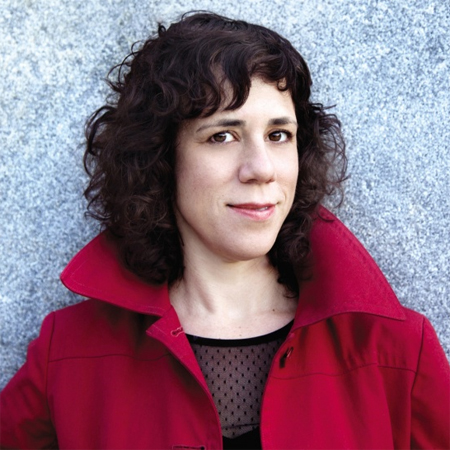
Jami Attenberg, author of the forthcoming novel All Grown Up, as well as five other books, including Saint Mazie and The Middlesteins
How do you save your project? Do you write in longhand or on your computer? I’m interested in .doc names, what word processing app you use, how often you save, etc.
I handwrite rough in the morning, and then I type and edit a version (maybe two) in the afternoon. I use word. I write in chapters and save as the title of the chapter (as long as I know what the titles of the chapters are), then v1, v2, etc, then eventually it all gets merged into one big document.
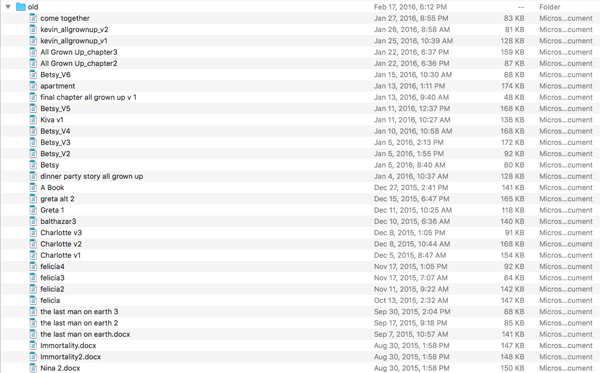
Do you edit as you go, or after you’ve finished?
I edit as I go by chapter to get it to a certain level of quality, hit 100 pages or so, and then I go back and look at everything, edit it again, and send it to my agent to see what he thinks. I write to straight to the end, usually, after that, again editing a version or two by chapter. Then I do two or three rounds of edits at the very end, big picture stuff. This is all before it goes back out to the agent or editor or first readers. Also, at some point the entire book gets read aloud.
Do you turn off the Internet while you’re working?
When I’m handwriting, I’m never online or near the computer. When I’m typing it up, sometimes I use Freedom.
Do you listen to music while you’re writing?
Yes, either instrumental or if it’s sung, it’s in a foreign language.
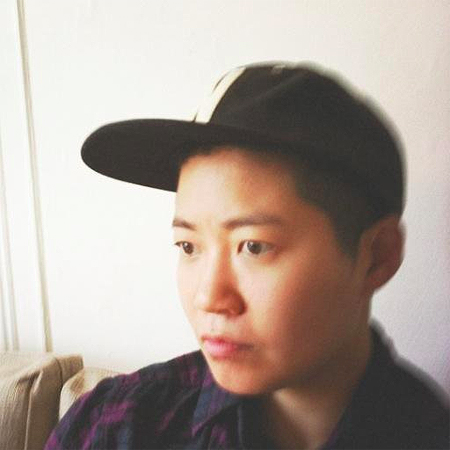
Patty Yumi Cottrell, author of the forthcoming Sorry to to Disrupt the Peace
How do you save your project? Longhand or computer? I’m interested in .doc names, what word processing app you use, how often you save, etc.
I saved my book as a docx. I set up Microsoft Word to save every few minutes. I think it was originally saved as helen.docx. Then when I was serious about it and really focused, I saved it as helenmarchnew.docx. That was in March. I sent it to my friend Dan, and he thought that was the title of the book: Helen March New.
Do you edit as you go, or after you’ve finished?
I’m always figuring it out as I write. For me, it’s easier to fix things that way and to keep the energy of the work. So my preference is for the draft to be as perfect as can be as I’m writing it. This isn’t set in concrete though. Different books require different things.
What do you eat while you’re drafting?
In a perfect world, I would eat vegetables. But the fact is I write more clearly on an empty stomach.
Do you turn off the Internet while you’re working?
Sometimes I watch highlights from the NBA. I also like to look at images of Thomas Bernhard’s house in Obernathal and W.G. Sebald’s house in Norwich. If I’m really absorbed in writing, I don’t need the internet.
Do you listen to music while you’re writing?
I listen to Fiona Apple, Bach, the theme song from Murder She Wrote, Angel Olsen, and silence.
Do you require different conditions (lighting, bed, etc.) for writing versus editing?
PYC: The conditions I require are mental rather than physical. Writing or editing, what I require is a snowy landscape with a bridge suspended over the void. What I’m saying is that I need the void. I will drop into it all of the things I have failed at. Then I can write.
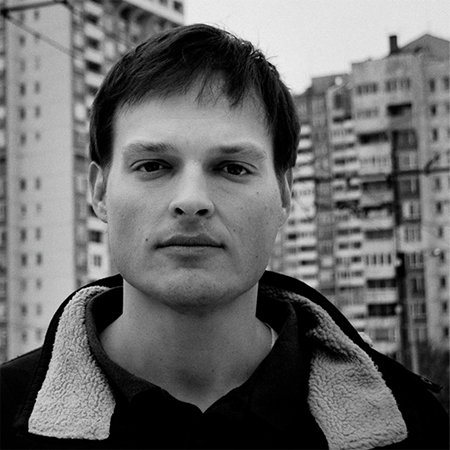
Garth Greenwell, author of What Belongs to You
How do you save your project? Longhand or computer? I’m interested in .doc names, what word processing app you use, how often you save, etc.
I write fiction longhand, in cheap spiral-bound notebooks. Once I have a draft, I’ll transfer what I’ve written into the computer. I save the file with a new name every day, as a way of tracking progress while I edit. The file name starts with the date (year.month.day) and then the working title, to keep everything in chronological order.
Do you edit as you go, or after you’ve written?
After I’ve written. The one exception is that I will often go back and add things while I’m drafting, using post-it notes or scraps of paper taped in.
What do you eat while you’re drafting?
I don’t eat while I’m writing. I’ll almost always have a cup of coffee or tea close to hand.
Do you turn off the Internet while you’re working?
One of the reasons I draft longhand is that I need to be away from the internet. I’ll keep a scrap of paper close by to write down anything I want to Google later (fact checking, etc.).
Do you listen to music while you’re writing?
I used to do this all the time, but now I don’t. I like to write in silence, and will often put ear plug in, even if I’m working at home (which is relatively quiet). I’ll only listen to music if I’m working in a noisy place, like a cafe, and need to drown out conversations.
Do you require different conditions (lighting, bed, etc.) for writing versus editing?
I guess I do. I tend to draft in an armchair with my notebook in my lap, or sometimes in bed or stretched out on the couch. I like a sense of disorder when I’m drafting: scraps of paper around, notes in the margin of the page, post-its sticking out everywhere. To edit I need a much greater sense of order, which means ideally I need to be at my desk.
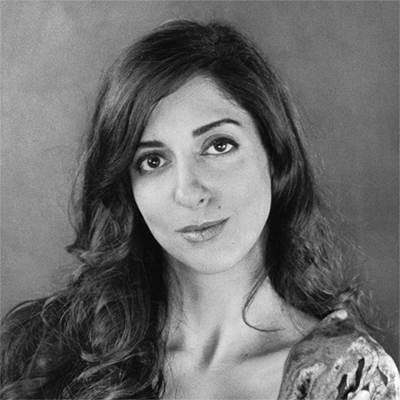
Porochista Khakpour, author of The Last Illusion and Sons and Other Flammable Objects
How do you save your project? Longhand or computer? I’m interested in .doc names, what word processing app you use, how often you save, etc.
Word docs. Computer plus handwritten notes. The doc names are just the title or working title of the project plus the draft versions. I try to save daily at least. I usually sent it to myself in an email (gmail). I bought a lot of extra storage there.
Do you edit as you go, or after you’ve written?
After.
What do you eat while you’re drafting?
This is critical for me. Butter coffee is a new thing that works well. Matcha has always been helpful. If I’m feeling virtuous it will be nuts, vegetables, fruit. But very often it’s tuna melts, lox on a bagel, burger and fries. Comfort foods become essential for when writing. I find writing rather uncomfortable so bring on the greasy, carboy, filling comfort. More than anything though, I find chewing gum to be quite essential (I used to smoke and now this replaced that). I feel gum-chewing revs up my brain and pretty sure I read a study (rolls eyes) that says that too! I buy gum in bulk—it used to be Hubba Bubba because I liked the psychedelic flavors and bubble blowing, but I’m trying to be healthy so it’s more xylitol gum now.
Do you turn off the Internet while you’re working?
Not usually. (The news is so bad lately that it’s easy to try to avoid it at times!)
Do you listen to music while you’re writing?
More so when editing. Only classical. No lyrics. “Goldberg Variations” seems to work better than anything, but I’ve done time with Chopin and Philip Glass too.
Do you require different conditions (lighting, bed, etc.) for writing versus editing?
Yes. I need relaxation and peace for writing (I’ve been known to drink “sleepytime tea” when generating, to calm myself down), but I am happy to be an anxious, anal, intense, severe human for editing (so caffeine is critical here). I can edit any time, but generating needs to be at these special times (when I wake up first, deep in the night, anytime when I feel like there is more potential to tap into some dreamy mystical magic). I tend to be quite superstitious about the writing process, which annoys me. I am very Left and Right brain divided—a curse more than a blessing.
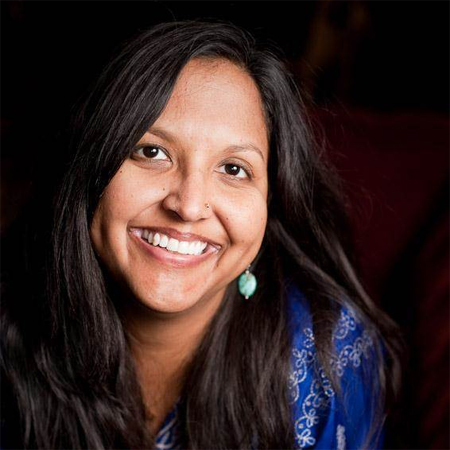
Nina McConigley, author of Cowboys and East Indians
How do you save your project? Longhand or computer? I’m interested in .doc names, what word processing app you use, how often you save, etc.
I save everything on my computer. And I still use Microsoft Word. I tried to do Scrivener, but it wasn’t intuitive for me. Robert Boswell sat me down and gave me a Scrivener tutorial – I saw how he had organized his last novel Tumbledown, and I still couldn’t get it.
I have something like 19 versions of Chapter 1 of my novel. And I save them as Chap1.1, Chap1.2 and so on. I hate looking at the folder with my novel. It’s a hot mess. I also have folders called Notes.docx, Who Knows.docx, Use Somewhere.docx. It’s the saddest folder.
Do you edit as you go, or after you’ve written?
I edit as I go. But with a novel, I then go back to an early chapter and will gut it.
What do you eat while you’re drafting?
I wear these weird fingerless gloves when I am writing. They are for carpal tunnel, which I don’t have. When I put them on, I am in writing mode. So because of the gloves, I don’t eat while working. That said, I drink a lot of Diet Coke. And I chew an incessant amount of gum. Grape gum and Diet Coke have pretty much fueled the last draft of my novel. I used to drink wine, but now, honestly, I can’t drink and write. It just makes me want to sleep, not work.
Do you turn off the Internet while you’re working?
No. I keep it on. And I look at all kinds of things not related to the book. There is a video of the Kuroshio Sea in the Okinawa Churaumi Aquarium, and I spend a lot of time looking at the fish there. It’s very soothing.
Do you listen to music while you’re writing?
I listen to a lot of Indian classical music. Nothing with lyrics. I love the musician U. Srinivas. His mandolin playing has been the soundtrack to my novel. I love Carnatic music in general to write to.
Do you require different conditions (lighting, bed, etc.) for writing versus editing?
I do everything from my bed. My back is paying for this. But I have this amazingly ugly bed lounge pillow with arms. That thing lets me write for hours. I probably should pay more attention to lighting and having more back support. Maybe it’s not wonder that I feel writing this novel has aged me 10 years.
With editing, I print the pages. I can’t edit on the screen. Then read them again in bed. I really should sit at a table.
Feature image: Work No. 88, Martin Creed.
Claire Luchette
Claire Luchette is a writer from Chicago. Her work has appeared or is forthcoming in Ploughshares, Indiana Review, Glimmer Train, and O, the Oprah Magazine.



















